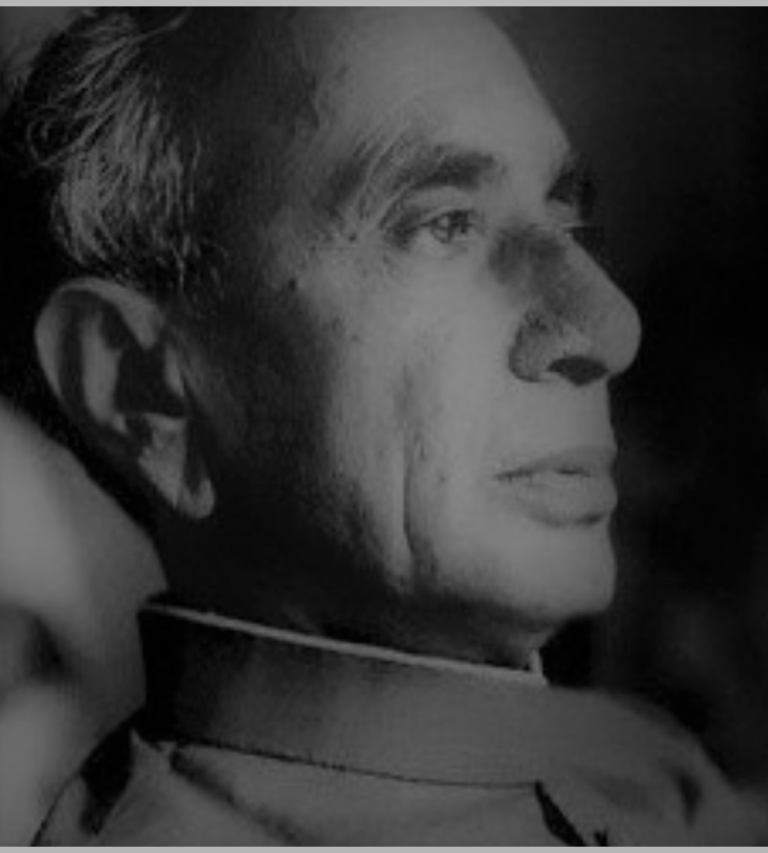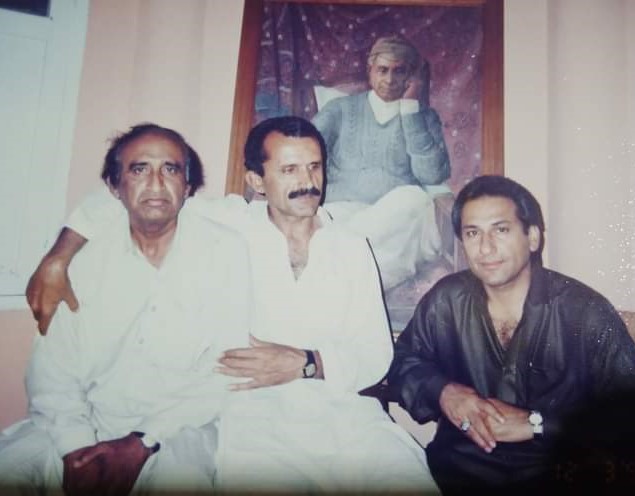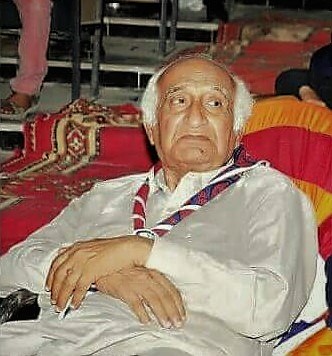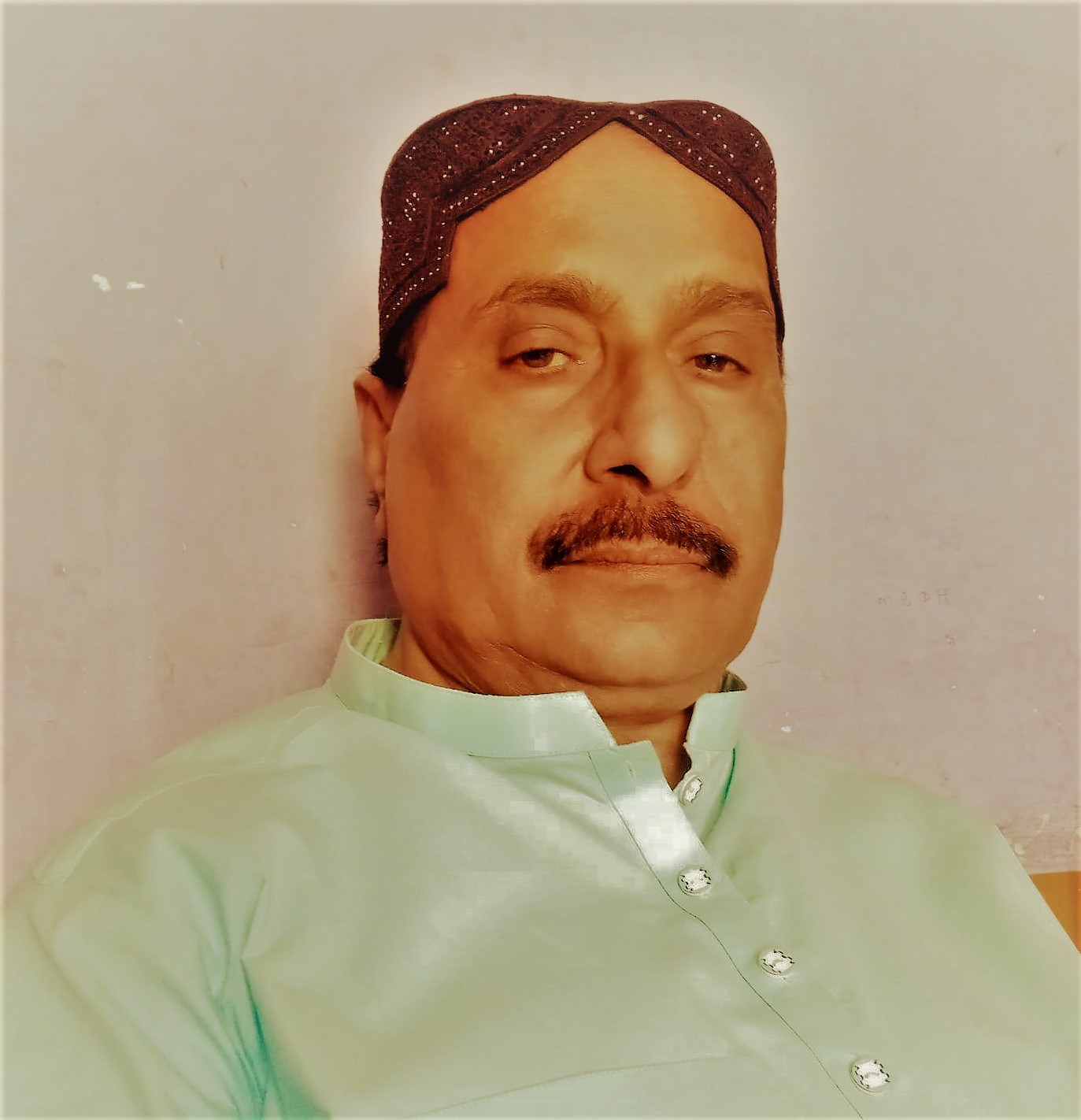
‘I, G. M. Syed, beg your pardon for my aggressive attitude.’
GM Syed apologizes to a Jeay Sindh leader
[Author’s Note: Will and Ariel Durant’s book – The Story of Civilization’s first volume appeared in 1935 and a complete set of eleven volumes was published in 1975. The authors took more than four decades to complete the manuscript. The readers well received the book. Therefore, their presence was sought in radio shows and press briefings. Will Durant has mentioned in one of his interviews that most common question around the globe was: ‘what is most important in human civilization, Intelligence, health or character? Will Durant responded the question that first comes the character, then health, and in the last – intelligence. I believe so, and it is still relevant in all walks of life.
I am of the view that in Sindh’s politics Mr. GM Syed, the nationalist leader and founder of Jeay Sindh Movement, was the powerhouse of ideas, and torchbearer of morality. Let me not shy, and state that he was the only politician, who practiced his ethos across the board, irrespective of political differences, power, age, class, and gender. I had been pondering over to document Jeay Sindh workers’ personal encounters with GM Syed. I would like to share an incident of 1982-83, narrated by Mr. Moula Bux Buriro, who was senior member of Jeay Sindh Mahaz.This is fourth article of this series.]
By Dr. Zaffar Junejo
In 1980s, the Jeay Sindh Movement was very much conditioned by the world politics and ideologies. The leading influencing factors were ‘Class Question’ and ‘the Communist Party’s self-critical culture’. Resultantly, Jeay Sindh Mahaz found itself left of the center. Therefore, in its meetings ‘Class Question’ was also discussed. In those times, another faction, which called itself Jeay Sindh Tahreek coined a new term “GMism” for their identity. They claimed that GM Syed’s program was self-contained ideology like ‘Leninism’ or ‘Marxism’.

Both parties criticized their point of views, and gradually stopped to converse each other. It was visualized that their contradictions might sharpen, and turn into hatred. Sensing the untoward situation, Saeen GM Syed formed Jeay Sindh Supreme Council, where both parties’ representatives were members. One of its meeting held at Sann, was presided over by Saeen GM Syed. During a break, Mir Moula Bux Laghari, (senior leader of Jeay Sindh Mahaz) and Sarwar Sahito (also a senior leader of Jeay Sindh Mahaz) argued over an issue. The discussion became a bit volatile, and in protest Sarwar Sahito went out. Soon, the meeting resumed. Sarwar Sahito came in, but he was tense. When his turn came to deliver speech, he spoke bitterly. Quickly, he became aggressive and raised his tone. Everyone noticed his attitude.

Saeen GM Syed wanted to halt him, but instead of changing his tone or ending the speech, Sarwar Sahito became more aggressive and addressing directly to Saeen GM Syed, he said, ‘Don’t treat us like your peasants. We are here for the cause of Sindh. Don’t behave like a feudal lord.’ These words dropped like the bombs. All members became silent, including Saeen GM Syed and he himself.

The silence was unbearable. Saeen GM Syed closed his eyes. After about fifteen minutes, he opened his eyes, looked at us, and told that in one of the Indian National Congress meeting Jawaharlal Nehru arrogantly spoke to one of his fellow members. Soon, he realized his mistake, and apologized.
According to Moula Bux Buriro, ‘Saeen GM Syed paused for a while, and again silence engrossed the hall. He got up from his presiding seat, stepped to Sarwar Sahito, folded his hands, and begged him: ‘I, G. M. Syed, beg your pardon for my aggressive attitude.’ Moula Bux Buriro recalls that these words worked like a current, a new radiant light was lit in the room, and all the participants’ eyes were wet.
[author title=”Dr. Zaffar Junejo” image=”https://sindhcourier.com/wp-content/uploads/2021/11/Dr.-Zaffar-Junejo-Sindh-Courier.jpg”]Dr. Zaffar Junejo has a Ph.D. in History from the University of Malaya. He is freelance writer and his areas of interest are post-colonial history, social history and peasants’ history.[/author]
Click here for Part-I, Part-II, Part-III